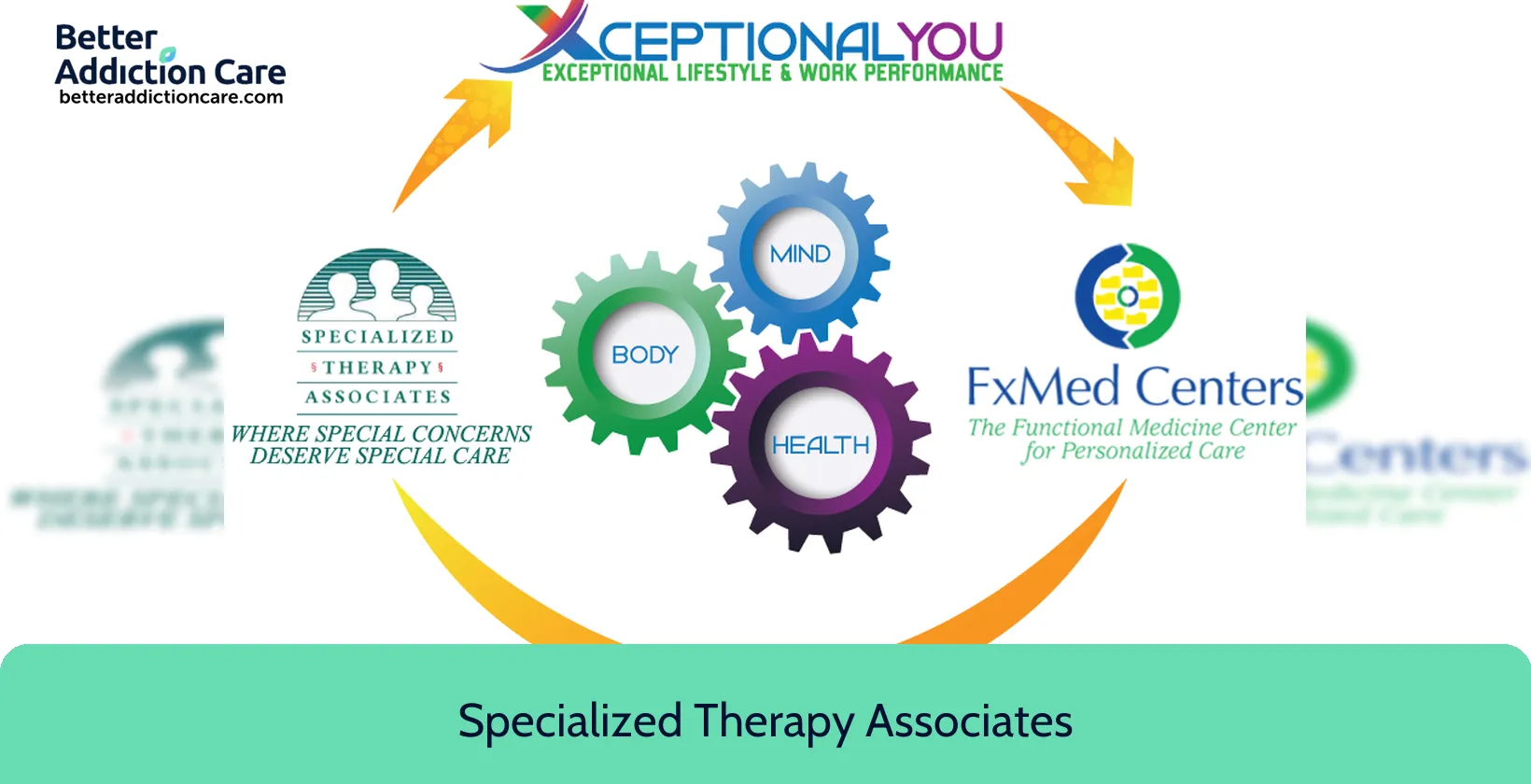Specialized Therapy Associates
Overview
Specialized Therapy Associates is a mental health treatment center for people seeking treatment near Bergen County. As part of their treatment modalities for recovery, Specialized Therapy Associates provides couples/family therapy, group counseling, and cognitive behavioral therapy during treatment. Specialized Therapy Associates is located in Hackensack, New Jersey, accepting cash or self-payment for treatment.
Specialized Therapy Associates at a Glance
Payment Options
- Cash or self-payment
- State-financed health insurance plan other than Medicaid
- Private health insurance
- Federal military insurance (e.g., TRICARE)
- State welfare or child and family services funds
Assessments
- Comprehensive mental health assessment
- Comprehensive substance use assessment
Age Groups
- Children/adolescents
- Young adults
- Adults
- Seniors
Ancillary Services
- Chronic disease/illness management
- Diet and exercise counseling
- Education services
- Family psychoeducation
Highlights About Specialized Therapy Associates
6.71/10
With an overall rating of 6.71/10, this facility has following balanced range of services. Alcohol Rehabilitation: 8.00/10, Drug Rehab and Detox: 6.00/10, Insurance and Payments: 6.00/10, Treatment Options: 6.85/10.-
Alcohol Rehabilitation 8.00
-
Treatment Options 6.85
-
Drug Rehab and Detox 6.00
-
Insurance and Payments 6.00
Treatment At Specialized Therapy Associates
Treatment Conditions
- Alcoholism
- Mental health treatment
- Substance use treatment
- Co-occurring Disorders
Care Levels
- Outpatient
Treatment Modalities
- Couples/family therapy
- Group counseling
- Cognitive behavioral therapy
- Dialectical behavior therapy
- Integrated Mental and Substance Use Disorder treatment
Ancillary Services
Languages
- Spanish
Special Programs
- Clients with co-occurring mental and substance use disorders
- Veterans
- Members of military families
- Clients who have experienced trauma
- Persons with post-traumatic stress disorder (PTSD)
Contact Information
Read our Most Recent Article About Drug Addiction
DISCLAIMER: The facility name, logo and brand are the property and registered trademarks of Specialized Therapy Associates, and are being used for identification and informational purposes only. Use of these names, logos and brands shall not imply endorsement. BetterAddictionCare.com is not affiliated with or sponsored by Specialized Therapy Associates.









